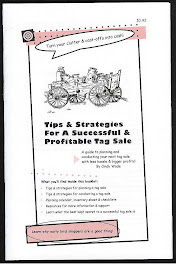So, the world didn't end on 12-21-12 after all, but you made the decision to homeschool just in case life, as you know it, goes haywire later on. Not sure where to begin? One thing you need to remember is that the word
homeschooling is a misnomer. We don't necessarily stay home and we don't school. For the sake of brevity and general understanding though, the word
homeschooling is used as a catchall to describe the action of not going to school. Personally, I prefer the words
autodidactic or
self-learner.
We've all been there at that same homeschooling starting gate and many of us learned what to do by trial and error. Lucky for you there are now millions of parents with hindsight on how they'd go about beginning their wonderful homeschooling journey all over again. Keep in mind each family has different needs and each child is unique. However, human nature doesn't change, so if your approach isn't working, follow your instincts for the best route to
a successful homeschooling experience.
Here are 10 simple ways to help you transition to homeschooling after making the decision to do so:
#1. Get any required paperwork for your legal obligations to your state in
order and out of the way first. Tell those in charge only what they want to
hear and as little as necessary. Don't spill your guts to them about
your educational philosophy or your approach to child rearing. You don't
even need to tell them how bad the public schools are because they
already know. The state just needs to cover its butt to account for the
monies they receive from the bounty on your child's head, a sad reality but true.
#2. Let your child get used to 'sleeping in' and setting their own rhythm. Recreating school, as you know it, in your home is not beneficial or conducive to true education. Bells, time blocks, report cards, tests, grades and all the other school trappings are purely a distraction from real learning. Think in terms of freedom. Homeschooling works because it's about the home and not the schooling.
#3. Stock up beforehand on books and age appropriate learning materials and supplies. Your home should become a library, workshop, craft center, restaurant, clinic, gallery, playground and retreat all rolled into one. This can all be done
inexpensively and creatively.
#4. Share all your meals, or as many as you can, together for the purpose of conversation and feedback, until your level of confidence rises enough to handle the changes. Mealtime is a great opportunity for some much needed face-to-face time in our harried lives.
#5. Find one or two other homeschooling families you'd like to emulate and then pick their brains. Ask questions and learn as much as you can about homeschooling. Larger support groups aren't necessary and can be very cumbersome. The same goes for the amount of friends your child has. All they need is one or two good ones they can share life with.
#6. Prepare for lots of down time for your child, especially if your child was recently enrolled in public or private school. Your child will need decompressing from the artificial world of institutionalized living. This may take a week, a month or even a year for your child to get back to normal in order to feel safe and human again.
#7. Be open to learning alongside your child because that's what will happen. You'll finally have the opportunity to improve your own reading, writing and spelling skills. You'll be able to study subjects in depth the same as your child will, so go after those topics that improve your lot in life, such as
money, health, and politics. Be prepared to unlearn many bad habits and misinformation you learned during your own public school experience.
#8. Keep friends and family members, who resist your decision to homeschool, at arms length. Circle the wagons, so to speak, around your family and develop a backbone. Throw off any wishy-washy attitude you may have about homeschooling and tell yourself there is no going back, only forward with the determination to be the best homeschooling parent on this planet.
#9. Give lots of hugs and encouragement to your child and always use positive language. Learn to use the word 'need' instead of 'want'. Saying 'you
need to do this' is far more effective than saying 'I
want you to do this', because your child trusts you to have their back and your whole heart. Self-esteem comes from accomplishments, self-discipline, self-respect, honesty and motivation.
#10. Relax and make time for yourself so you can plan, do research and have the energy to shift gears when the need arises. Develop an optimistic sunny side that will rub off on your child and all you meet. As the saying goes: don't sweat the small stuff. Develop your patience and enjoy this fleeting time you have with your child while you walk this earth. Your greatest accomplishment, when all is laid to rest, will be the person your child has become when they reach adulthood and have children of their own.
Connect with Guerrilla Homeschooling on Facebook!














































